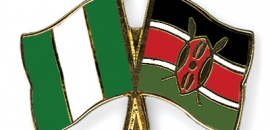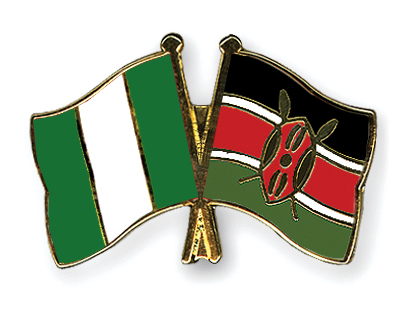
Nigeria and Kenya Adopt Mahama’s Goldbod Initiative
Oct 20, 2025
by Ekow Benyah Oct 20, 2025

October 19, 2025
In a significant shift in monetary policy, Nigeria and Kenya have announced plans to build substantial gold reserves, mirroring Ghana's successful strategy to bolster currency stability and reduce dependence on foreign exchange reserves.
The move by Africa's largest economy and East Africa's economic powerhouse signals a growing trend among African nations to leverage their natural resources as a hedge against currency volatility and external economic shocks.
Ghana has emerged as a trailblazer in the region for its aggressive gold reserve accumulation strategy. Over recent years, the Bank of Ghana has systematically purchased gold from local artisanal and commercial miners, significantly increasing its precious metal holdings.
This strategy has helped the West African nation stabilize the Ghana Cedi and reduce pressure on its foreign exchange reserves, particularly during periods of global economic uncertainty.
"Ghana's approach has demonstrated that African nations don't have to rely solely on traditional reserve currencies," said Dr. Amina Okonkwo, an economist at the African Development Institute. "Gold reserves provide a tangible, inflation-resistant asset that can support monetary stability."
For Nigeria, the decision comes at a crucial time as the Naira has faced sustained pressure in recent years. The Central Bank of Nigeria has struggled to maintain exchange rate stability amid declining oil revenues and mounting foreign exchange demands.
With Nigeria possessing significant gold deposits across several states, including Zamfara, Kaduna, Niger, and Osun, the country is well-positioned to develop domestic gold reserves without depleting its foreign exchange holdings through international purchases.
Industry analysts estimate that Nigeria has over 200 million ounces of untapped gold reserves, presenting a substantial opportunity for reserve diversification.
Kenya's decision similarly reflects growing concerns about the Shilling's vulnerability to external shocks and the country's heavy debt burden denominated in foreign currencies.
The Central Bank of Kenya has indicated that building gold reserves could provide a crucial buffer against currency fluctuations while potentially reducing the country's exposure to dollar-denominated debt risks.
Kenya's gold mining sector, though smaller than Nigeria's, has been experiencing growth, with several counties including Migori, Kakamega, and Siaya hosting active mining operations.
The coordinated move by these three major African economies could signal the beginning of a broader continental shift in reserve management strategies.
"This represents a fundamental rethinking of how African central banks manage their reserves," noted Professor James Mutua, an international finance expert at the University of Nairobi. "We may be witnessing the emergence of a new African approach to monetary sovereignty."
The strategy could also provide a significant boost to local gold mining industries across the continent, creating employment opportunities and encouraging formalization of artisanal mining operations.
However, experts caution that building gold reserves is not without challenges. Nations must ensure proper regulatory frameworks for gold purchases, establish secure storage facilities, and maintain transparency in acquisition processes to prevent illicit gold trading.
Additionally, the effectiveness of gold reserves in currency stabilization depends on various factors, including the scale of accumulation, market conditions, and complementary monetary policies.
The African nations' pivot to gold reserves comes amid broader global trends, with several emerging market central banks increasing their gold holdings as a hedge against dollar dominance and geopolitical uncertainties.
According to the World Gold Council, central banks globally have been net purchasers of gold for over a decade, with emerging market central banks leading this trend.
As Nigeria and Kenya embark on this journey, the international financial community will be watching closely to assess whether Ghana's model can be successfully replicated across diverse African economies.

Oct 20, 2025

4 weeks ago

Oct 28, 2025